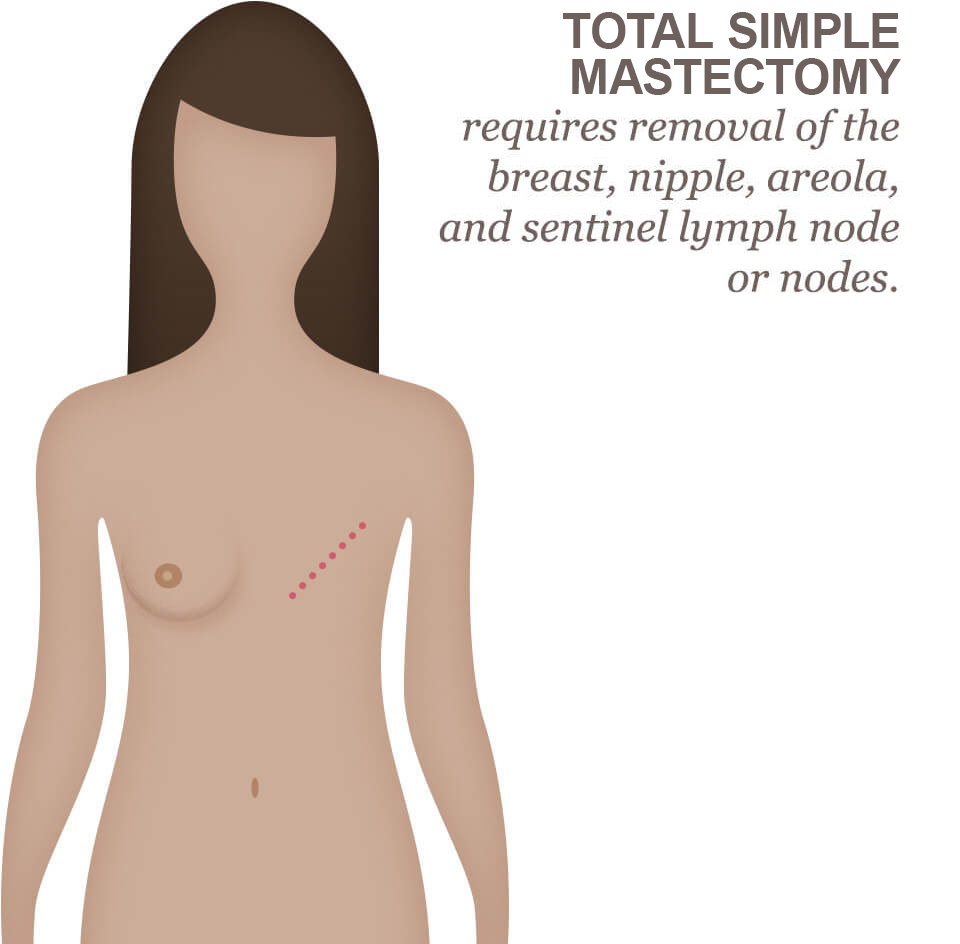Mastectomy
What Is A Mastectomy?
In the past, breast cancer surgery often required removing the entire breast, chest wall, and all axillary lymph nodes in a procedure called a total radical mastectomy. Now, less severe surgery options exist and are common.
If the cancer is detected early enough, there are usually options that will remove the cancer while preserving breast tissue. The common options are a lumpectomy (most often followed by breast radiation treatments), a partial mastectomy, and a simple mastectomy.
The More Common Mastectomy Procedures Today Are:

Total Simple Mastectomy
A total simple mastectomy involves removal of the entire breast, nipple, areola, and sentinel lymph node(s). This type of mastectomy removes the breast skin as well, which is what makes it different than a skin-sparing mastectomy.
Skin-Sparing Mastectomy
This procedure requires removal of the breast tissue, nipple, areola, and sentinel lymph node (or nodes) but not the breast skin. Many women who intend to have breast reconstruction will opt for this procedure. In a skin-sparing mastectomy, the breast is hollowed out, allowing for it to then be filled with an implant or fatty tissue from elsewhere in the body, such as fat from the stomach, buttocks, or inner thigh.
Skin-Sparing, Nipple and Areola Sparing Mastectomy
This type of mastectomy is like the skin-sparing mastectomy but also preserves the nipple and areola. In order to preserve the nipple and areola, the breast cancer tumor must be at least 2 centimeters away from these anatomic structures. Commonly the incision is made underneath the breast in the area known as the mammary fold.
Modified Radical Mastectomy
This procedure requires removal of the entire breast, nipple, areola, and axillary lymph nodes but often leaves the chest wall intact.
It is important to know that doing a mastectomy does not result in longer survival than doing a lumpectomy. Both accomplish the same goal which is surgical removal of the primary breast cancer tumor.
Breast Cancer Surgery Guide
This free guide shares details on surgical options, helpful terms to know, information on reconstruction and cosmetic options, and support for healing from surgery. Plus, hear a Q&A from two-time breast cancer survivor and medical expert, Lillie Shockney.
Get the Free Guide


